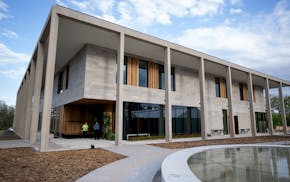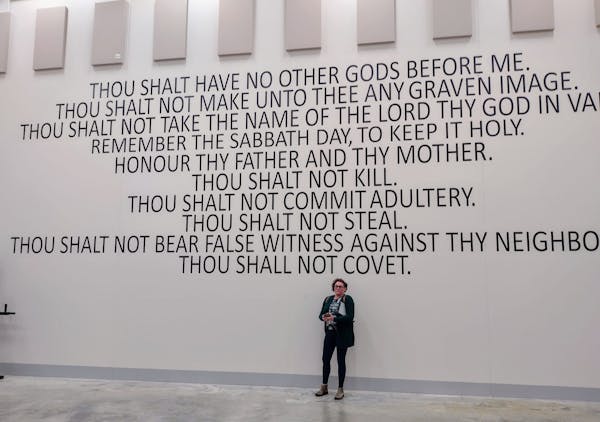Ramsey County election judges on Monday confirmed civil engineer Saura Jost's victory in St. Paul's Third Ward City Council race, wrapping up a historic election year for Minnesota's capital city.
Voters last week elected women to all seven of the City Council's seats. When the new council is sworn in at the start of next year, all seven members will be under the age of 40, and six will be women of color.
The Center for American Women and Politics at Rutgers University in New Brunswick, N.J., isn't aware of another American city the size of St. Paul ever electing an all-female council, said Jean Sinzdak, the center's associate director.
"Though we don't track this formally, I will say it's pretty rare to see a city elect all women," Sinzdak said. "St. Paul is in a really unique position, so it will be interesting to see where they go from here."
Jost, 35, declared victory on election night after her closest opponent, Isaac Russell, conceded. But since Jost received 48% of first-choice votes, falling short of a majority, election officials went through the reallocation process required by the city's ranked-choice voting system.
"What we really heard in our ward — and across the city — is everyone really wanted to see our community-centered politics," she said in an interview last week. "I'm just so excited to be able to represent the community that raised me."
Campaign representatives were allowed to watch ballots being counted and sorted, but could not challenge vote counts. The opportunity for challenges will come after Wednesday, when the City Council certifies the election results.
The Third Ward seat — which was open for the first time in 12 years, after three-term Council Member Chris Tolbert decided not to seek re-election — drew the highest turnout among the seven wards, with about 13,400 voters.
All seven council seats were on the ballot this year, and four of those races did not include incumbents.
Council Members Rebecca Noecker, Mitra Jalali and Nelsie Yang won re-election easily. The newcomers are Jost, Anika Bowie, Hwa Jeong Kim and Cheniqua Johnson.
Starting in 2018, when the first midterm elections were held following former President Donald Trump's election, the number of women running for office at all levels of government surged nationwide, Sinzdak said.
"Women of the left, in particular, have also been highly motivated by events happening since then," she said. "Roe v. Wade was highly motivating. Black Lives Matter was motivating. A lot of these progressive social issues have been very galvanizing for a lot of women running for office."
Many of the winning St. Paul candidates in interviews said they saw themselves as part of this wave and felt inspired by women elected to the Legislature in recent years.
"I think I feel both proud at having been at the forefront of this change in St. Paul, but also nervous because I know it will be hard," Jalali said. "I have a very fierce personal desire to transform our political culture to be healed of how patriarchy and racism seep into the ways that we are as people."
The incoming council members have said that while they campaigned together on a progressive agenda, they don't expect to agree on every issue.
"I like deliberating publicly," Noecker said. "And I think it's important to have people be able to see us doing that — because that builds trust in us."
In response to criticism that the new council lacks diverse perspectives, Kim said: "When I hear that, it's coming from folks that have benefitted from decision-making and processes and systems, and they now feel as if now things are being taken away from them.
"I feel strongly that it is not that we are taking away, but that we are ensuring that those who have not had an equitable opportunity have access to the things that other people have had access to for generations."

U of M's interim president meets with pro-Palestinian protest leaders

Thou shalt not blend church and state, new Minnesota jail is told

Lakewood Cemetery in Minneapolis opens new Welcome Center
![The Minneapolis City skyline including City Hall seen from the back of the U.S. District Court. ] GLEN STUBBE • glen.stubbe@startribune.com Mon](https://arc.stimg.co/startribunemedia/J6LWXC46FXN45KTZZGKPP4WGX4.jpg?h=91&w=145&fit=crop&bg=999&crop=faces)
Lawsuit asks judge to appoint special master to oversee city of Minneapolis violence prevention office

